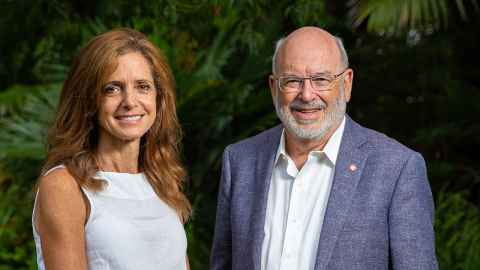Rethink needed on how governments manage risk
14 April 2021
Countries need to rethink how they prepare for and manage high-impact risks, according to a new report.

The report, Uncertain but inevitable – the expert-policy-political nexus and high-impact risks, exposes gaps in New Zealand’s risk management ecosystem and says we repeatedly fail to prepare for foreseeable but uncertain high-impact events.
The report was prepared by Koi Tū: The Centre for Informed Futures – a think tank at the University of Auckland's Faculty of Arts – which undertakes analysis into long-term issues challenging New Zealand’s future.
Written by Koi Tū director, Distinguished Professor Sir Peter Gluckman and Koi Tū deputy director Dr Anne Bardsley, along with national and international expert input, the report discusses risk assessment and perception, cognitive bias, and explores issues of accountability.
“The ultimate role of Government is to keep its citizens, environment and economy safe, so why are high-risk but predictable and inevitable events being often ignored by politicians and the policy community?" asks Sir Peter.
Sir Peter says: “One explanation is no one gets credit for preventing disasters happening. If you don’t have the risk on the books – or in this case a risk-register – no one can hold you accountable."
He says other explanations include human factors such as cognitive biases affecting our understandings of the risk landscape, and the trade-offs involved in investing in actions to mitigate potentially impactful events, even if they occur only erratically.
The report suggests creating an independent national risk office in the Office of the Auditor General. This office would oversee and maintain a publicly available risk register and provide oversight of agencies' general approach to risk management.
As a country, New Zealand has this ‘she’ll be right' attitude, and it does not serve us well. It’s a complex dynamic between politics, policymaking, expert judgement and public sentiment that feeds into whether government decides to mitigate or prepare for events.
It cites the example of the potential of a space weather event to wreak havoc on multiple, interconnected infrastructure systems – catastrophic if no risk preparations are made.
Other high-risk and inevitable event examples include the recent Auckland harbour bridge damage, the Whakaari/White Island volcanic eruption, the current water shortage in Auckland, and the 2017 Auckland fuel crisis.
Dr Bardsley says Covid-19 has provided a global wake-up call on risk assessment and management by governments, and it’s a reminder that it’s not if but when bad things will happen.
“It’s a good time to think about how we manage risks as country, as different organisations and individuals. We need to be adaptive and transparent. We can’t see how everything will play out but we need systems that are collaborative and responsive and thinking ahead.
“As a country, New Zealand has this ‘she’ll be right' attitude, and it does not serve us well. It’s a complex dynamic between politics, policymaking, expert judgement and public sentiment that feeds into whether government decides to mitigate or prepare for events,” she says.
Sir Peter says: “It’s a system that needs to be strengthened to ensure we are better prepared for important risks. And if we fail to undertake risk assessments systematically, holistically, and transparently, countries will continue to pay the price."
Media contacts
Sir Peter Gluckman | Koi Tū director
M: 021 755 568
E: pd.gluckman@auckland.ac.nz
Jill Rolston | Koi Tū communications manager
M: 021 983 034
E: jill.rolston@auckland.ac.nz